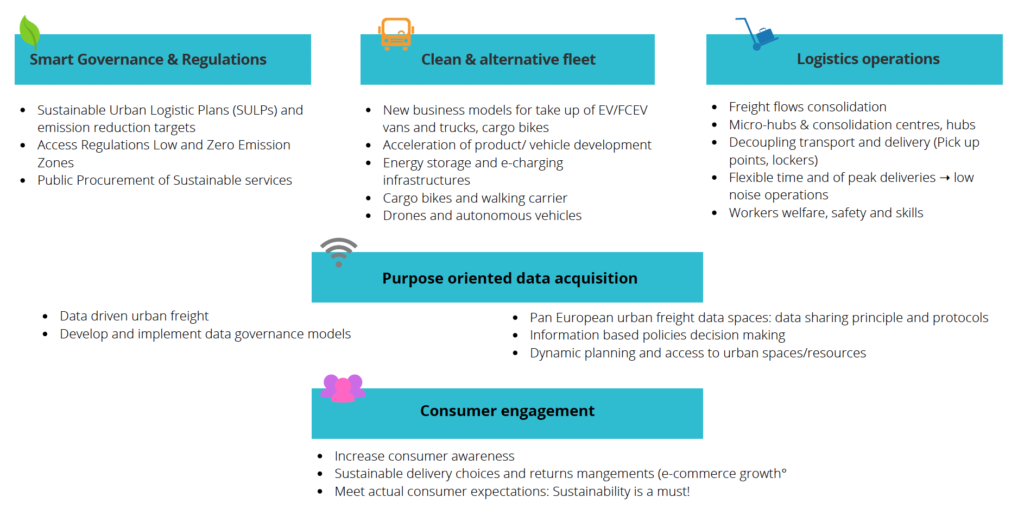On 1 December 2021, at the POLIS Conference 2021, members from both POLIS and ALICE presented the main highlights of the joint guide: advancing together towards zero emissions urban logistics by 2030. The common vision of the POLIS-ALICE Urban Logistics Strategic dialogue is to lead the transformation of urban logistics in cities to respond to the pollution, congestion, safety, and environmental challenges for liveable, prosperous, resilient, and safer cities.
Since the dialogue has started, a consensus has been reached on the vision towards zero-emission urban logistics by 2030. Public authorities and private companies have defined together overarching principles, key factors of success, and areas of intervention in which both play an active role. Additionally, productive collaborations have already emerged between companies and cities walking the talk. The guide presents many inspiring best practices.
The document address five key areas of intervention:
- Smart governance and regulations. Clear targets and plans focussed on logistics need to be worked out with stakeholders. Knowledge and alignment across cities and countries facilitate companies to adopt economies of scale and lowering costs.
- Clean & alternative fleet. Vans and trucks will continue to play a central role, while the use of small electric vehicles and cargo-bikes will increase considerably. New business and operational models are needed for their upscale integrating energy infrastructure and logistics operations.
- Logistics operations. Consolidation of flows, enabled by new models of collaboration, sharing of vehicles and infrastructure (e.g., Physical Internet principles) should become the norm as well as decouple transport and delivery solutions (e.g. pick up points, lockers, etc.).
- Purpose-oriented data acquisition and sharing. Interaction between companies and local authorities increases and will be facilitated by digitalization and pan-European open standards and protocols enabling seamless collaboration and information -based policies and measures.
- Consumer engagement. More transparency on implications of delivery choices will empower consumers to influence the market.

Source: ALICE
